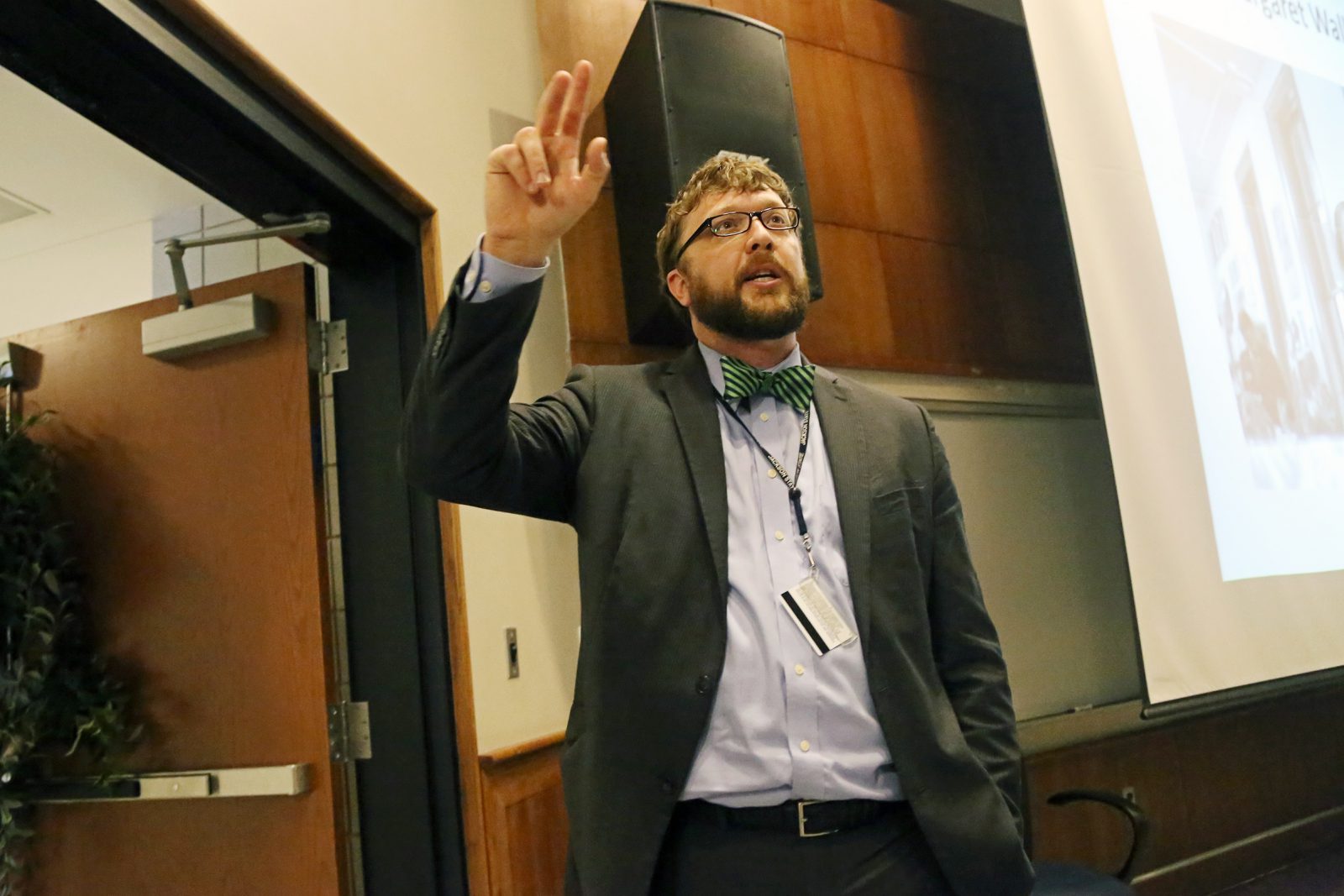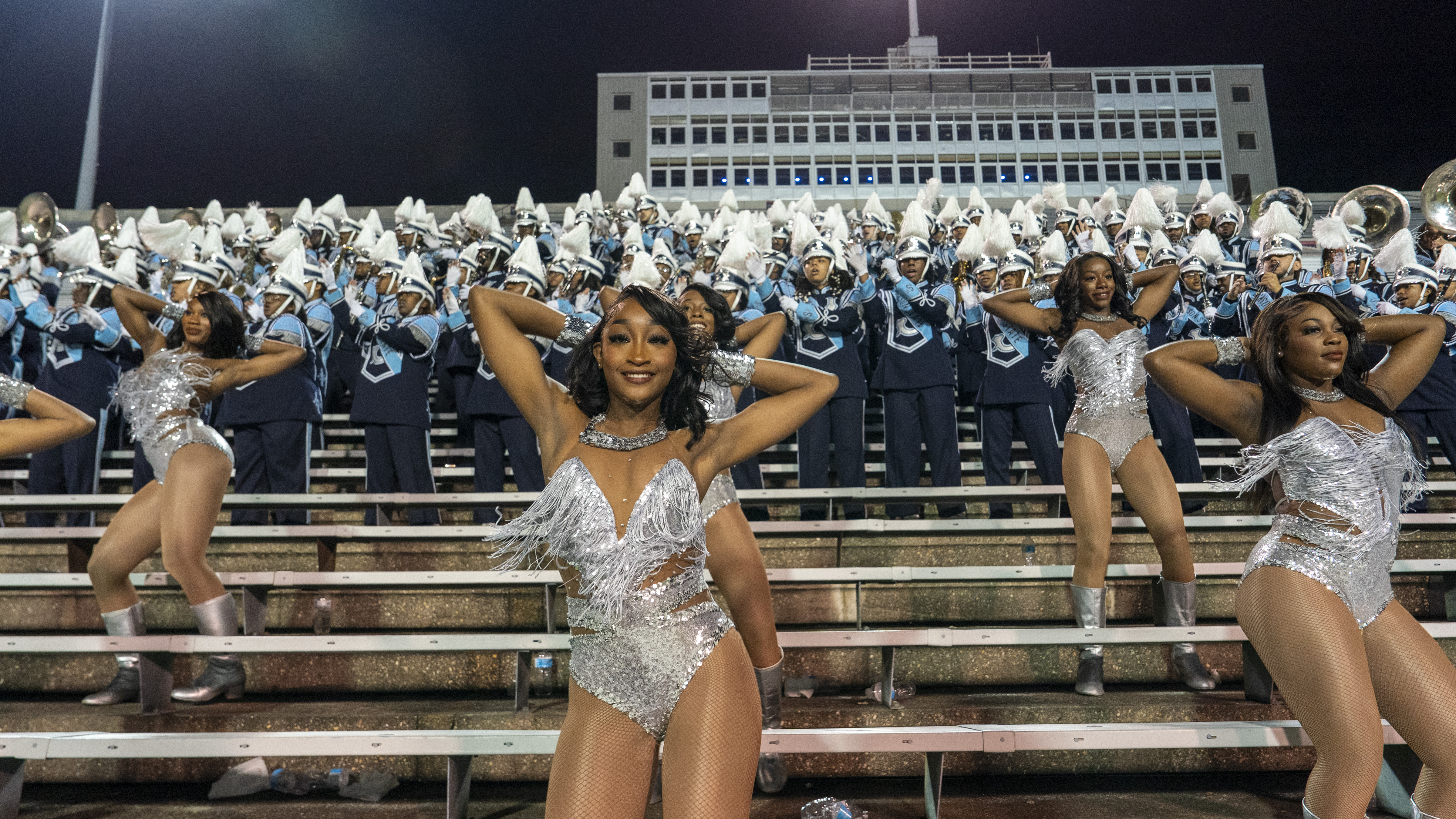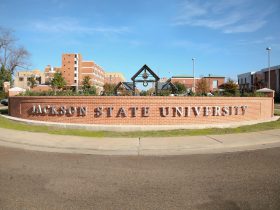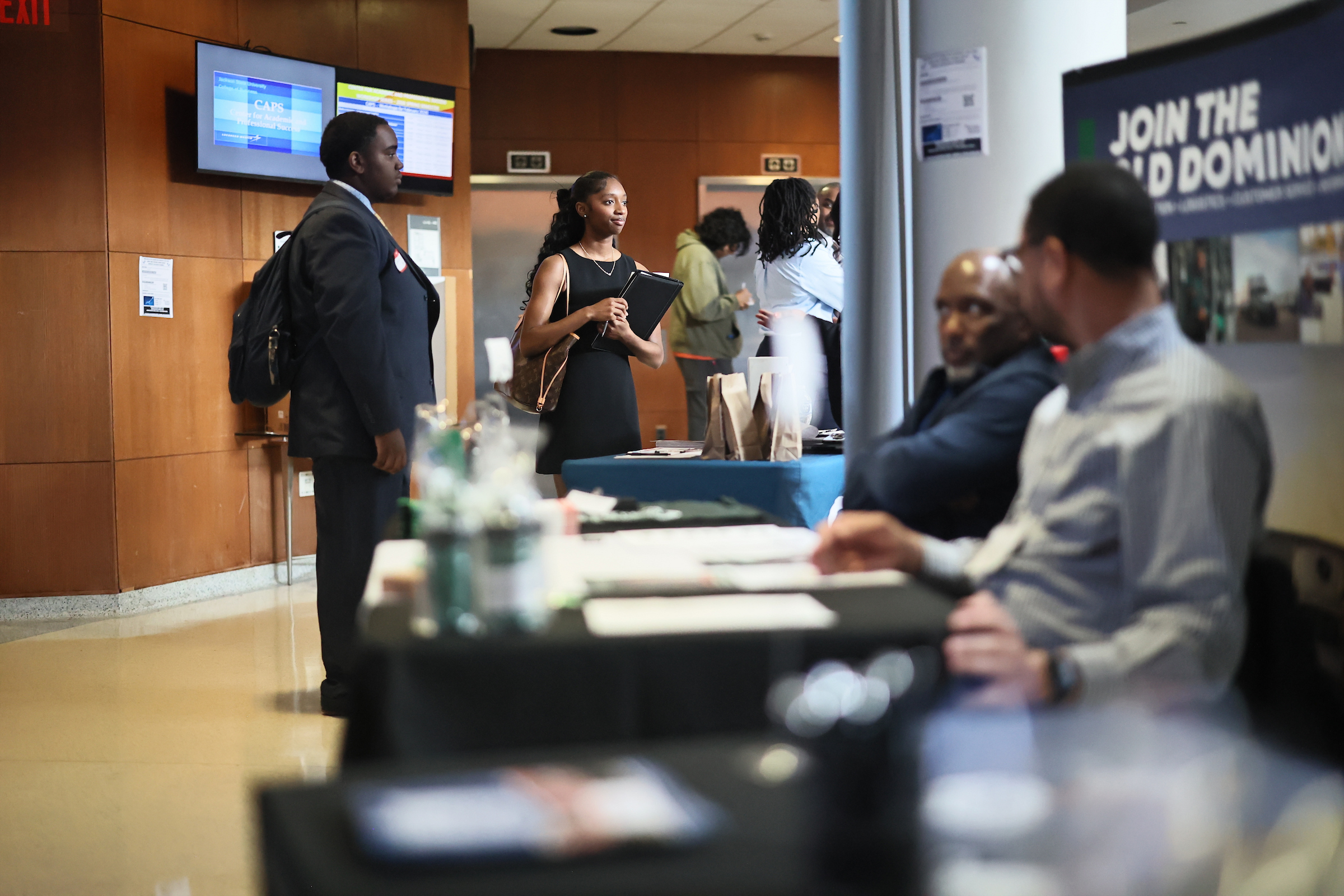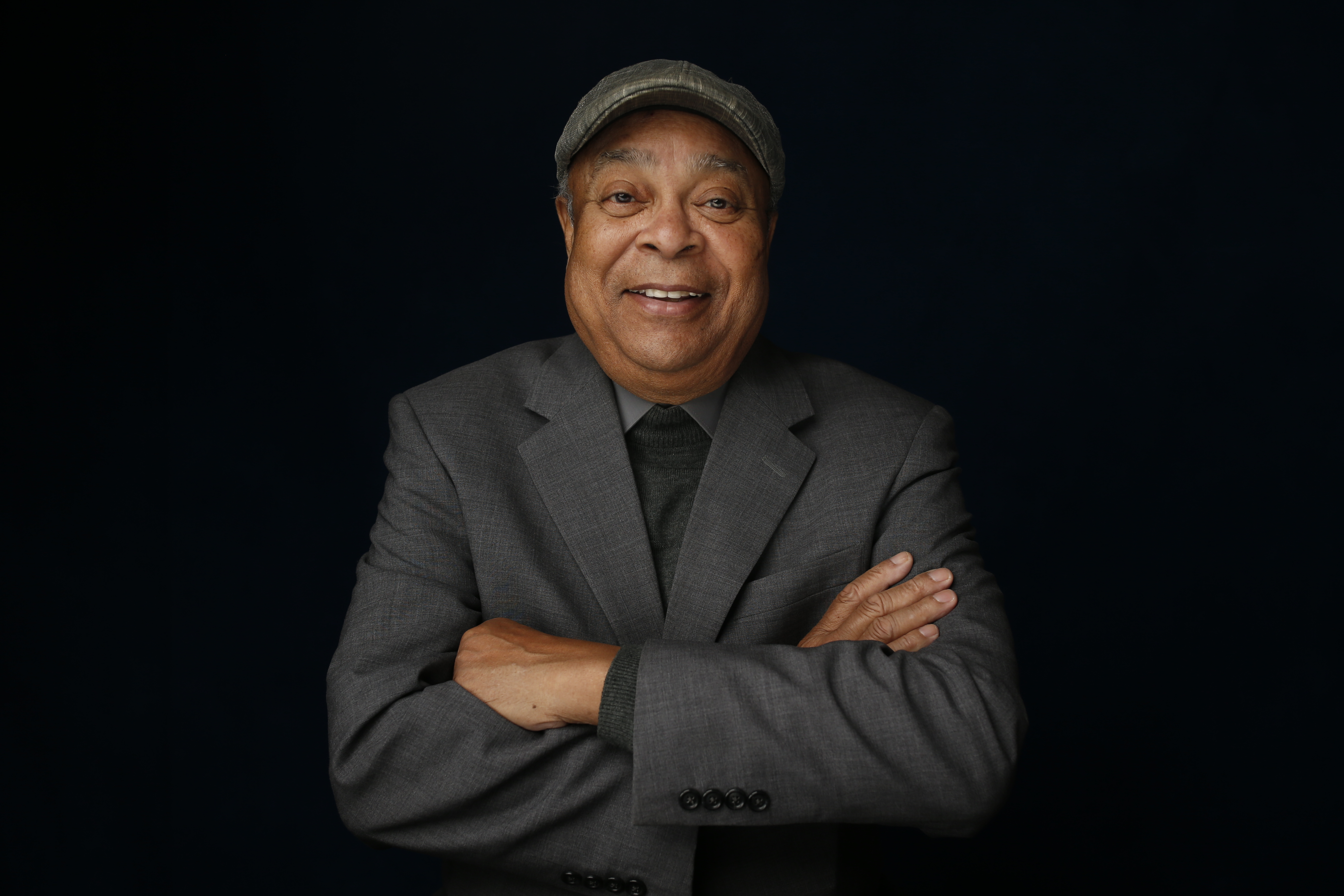The historic impact of the women of Jackson State University was the topic Tuesday as part of Founders Week — with the achievements, loves and losses of literary luminary Margaret Wright highlighting the discussion.
Festivities continue at 11:00 today with a panel discussion on forum on The JSU Spirit Through Football and Band at the Dollye M. E. Robinson Liberal Arts Lecture Rooms 166/266 with Samuel Jefferson and W.C. Gorden with moderator Dr. Steven Smith; and Dr. Lewis Liddell, Gloria Tatum, and Shirley Blakley with moderator Mea Ashley.
On Tuesday, the impact of the women of JSU was traced by Heather Wilcox, JSU neighborhood Development assistant, Department of Community Engagement.
Titled “Know, Understand and Applaud These Women!,” Wilcox outlined the achievements of each of the wives of the presidents to a packed room of students, faculty and staff at the College of Business auditorium.
She outlined the people behind the heralded names at JSU, such as Dollye M.E. Robinson, Rose E. McCoy, and Juliet Dobbs Blackburn. Then, Wilcox noted other more recent movers and shakers, including Sally Barksdale who spearheaded JSU’s Mississippi Learning Institute, culminating in current President Dr. Carolyn W. Meyers.
Calling her a “trailblazer,” as the first woman president of JSU, Meyers “catapulted JSU into the 21st century,” Wilcox said, with her promotion of technology and innovation.
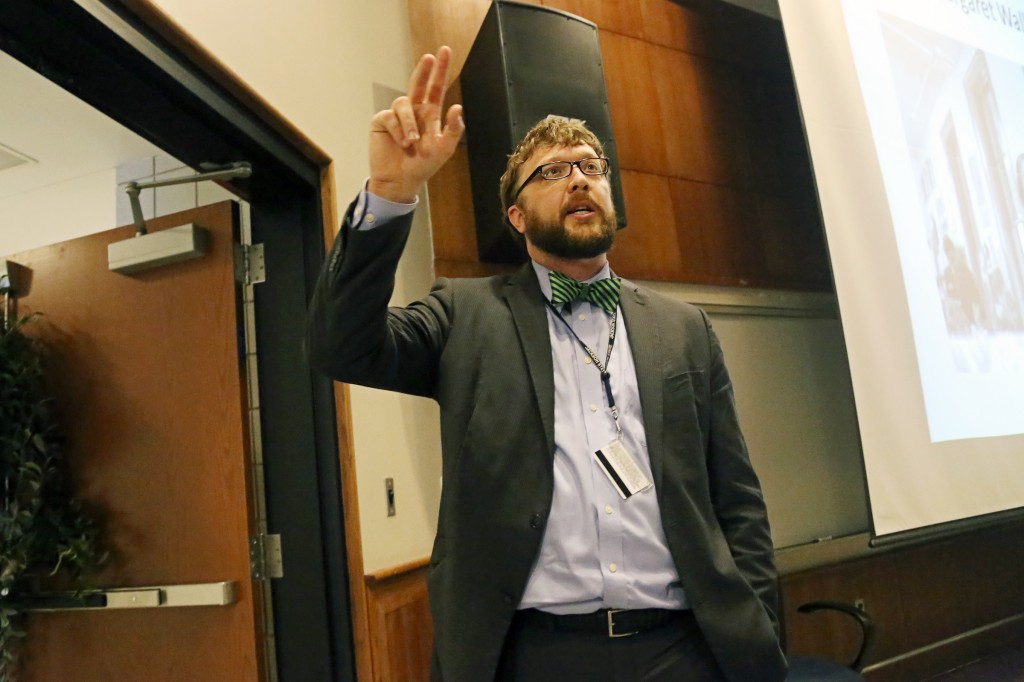
After Wilcox, Dr. Robert Luckett, director of the Margaret Walker Center for the Study of the African American Experience, electrified the audience with the achievements of JSU’s most prominent poet, novelist, essayist and professor.
Titled “The Voice of the Invisible Woman in the 20th Century Black Arts Movement,” the talk focused on Walker’s life, loves and losses. Among them, Luckett read from among 13,000 pages of personal journals Walker kept over 60 years that are now housed at the center.
Among those private entries are details about the romantic involvement of Walker and Richard Wright, some of which Luckett read aloud to the audience, eliciting sighs, and whispers. “You used me!” Luckett quoted Walker of saying about Wright, first in cultivating a young girl’s heart, then appropriating her ideas, then leaving her.
But that wasn’t the last time Walker was betrayed by one of the leading black male literary figures of her time. Luckett said that Walker kept in her house a copy of her book Jubilee and the book Roots by Alex Haley side by side with “lifted” passages highlighted. “Much like Wright, Haley had betrayed Margaret Walker,” Luckett said.
Luckett produced evidence of the significance of Walker to the literary legacy attributed to the five black men of letters with whom she associated: Wright, W.E.B. Du Bois, Langston Hughes, James Baldwin and Ralph Ellison.
Not only did Walker (known by her married name Margaret Walker Alexander by JSU friends and acquaintances) manage to overcome being born in 1915 in a racist, segregated, patriarchal South, Luckett said, but the JSU professor chose to live, write and teach in “Jim Crow Mississippi,” perhaps during the civil rights era “the most racist state in America.”
“She deserves to be lifted into the national conversation as she lifted so many others,” Luckett said, to thunderous applause.
The Founders’ Day Convocation will be at 10 a.m. Thursday, October 23, at the H.P. Jacobs Administration Tower Lawn and Quad on the JSU campus at 1400 John R. Lynch St. In case of inclement weather, it will be held at the Rose E. McCoy Auditorium.
Keynote speaker this year is Hank Thomas, a civil rights veteran and Freedom Rider in 1961.
Events will be capped by a 7 p.m. Friday, October 24, Black Tie Gala at the Jackson Convention Center in downtown Jackson, hosted by the Jackson State University National Alumni Association.



